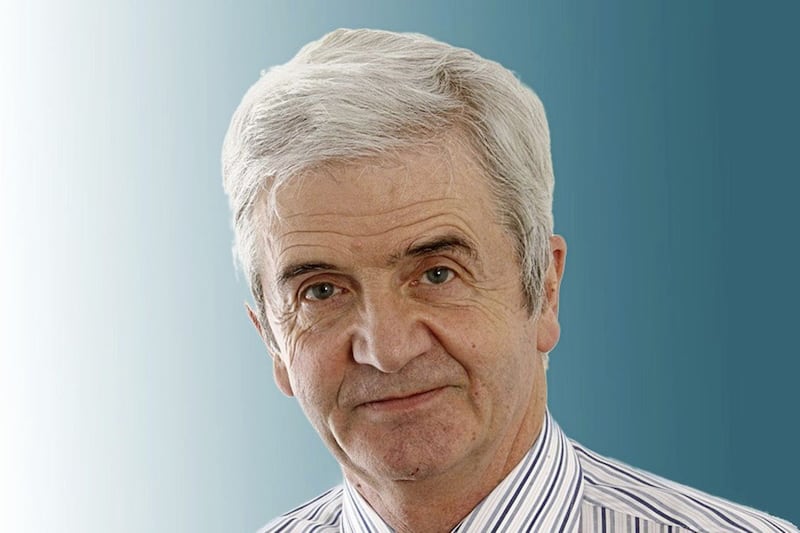Whatever happened to Catholic Ireland? Just 80 years after de Valera's Irish constitution recognised the "special position" of the Catholic Church, the Dublin government has already defied much of the Church's teaching by legalising contraception, divorce and same sex marriage.
Now, it has announced a referendum on removing the constitutional ban on abortion. If passed, it will herald a significant relaxation of abortion legislation. In what might be described as Irish society pushing past the final frontier of Catholic doctrine, opinion polls suggest majority support for the government's proposals.
At a time when, for example, 70 per cent of people in Catholic Poland view abortion as immoral and unacceptable, Irish society has radically changed. Although that change has been influenced by modern communications and growing secularism, it has been triggered mainly by a massive collapse in the status and influence of the Catholic Church.
So how did it all happen and where does Catholic Ireland go from here?
In the past 200 years, the Irish Church has evolved from being outlawed, to effectively running the 26 county state and to now being largely side-lined from Irish society. A century after Catholic emancipation, the 1932 Eucharistic Congress in Dublin attracted an estimated one million people (a quarter of the population) most of whom travelled by bicycle.
The Church held another Eucharistic Congress in 2012. Media reports suggested that only half the expected 20,000 pilgrims attended the opening ceremony and that they consisted largely of visitors from 123 other countries.
The Church's slow decline began in the 1960s, with the growing secularisation of Western society. But its support base collapsed in the 1990s, with media exposure of clerical child abuse and the hierarchy's denial that there was a problem.
Further media investigation revealed frightening details of historical abuse and neglect, mainly of women and children, in a number of Church-run institutions. Catholic emancipation had not emancipated all Catholics.
The Church extended its internal model of hierarchy to the outside world, where some people were regarded as more important than others. The unimportant, who were usually society's disadvantaged, tended to be punished in this world, presumably to prepare them for further punishment in the next.
These revelations of widespread abuse coincided with Ireland's first ever economic boom. The Church's self-made problems and its inward-looking style rendered it largely irrelevant to changing Irish society. Oddly, when the bust came, the Church opted to remain irrelevant. Its leaders displayed a remarkable reluctance to analyse the real world in which their flock lived.
There was no criticism of capitalism, no exposure of the immorality of compensation for bond holders, even though their loans were unsecured and no support for the Pope's assertion that the free market will not bring greater justice or inclusiveness. Only St Vincent de Paul offered hope and help to those in dire financial need. (Interestingly, demand for their services did not decrease in the slightest during the economic boom).
By remaining largely silent during Ireland's recession, the Church missed the opportunity to take the lead on social justice. Today with rural society effectively decimated, what were traditionally Ireland's two most popular buildings, the chapel and the pub, lie largely deserted. The difference between the two is that many people now drink at home.
Ah but, you say, the Pope is coming. He is and his impact on the abortion issue remains to be seen. Although his visit will be popular and well supported, it is unlikely to halt the Church's long-term decline.
Indeed his recent visit to Chile appears to have harmed an already fragile Church there. He accused victims of a paedophile priest of slander when they said that a bishop had helped cover up the crimes. He might tread more carefully in Ireland.
One consequence of the Church's collapse is that it will find it difficult to lead the anti-abortion campaign. As the hierarchy says, "Let us through, we are your leaders", others will be at the front.
This means that the Pope will be visiting post-Catholic Ireland and it is likely to remain like that for some time. In fairness, many individual clergy work hard to offset the Church's irrelevance and Catholic schools tend to be the best in the country. But as an organisation, the Church has lost most of its former support.
That loss can usefully be illustrated by the fact that in 1971 the Irish Women's Liberation Movement brought contraceptives from Belfast to Dublin by train to defy southern legislation. That same train may soon bring women from the north for abortion in Dublin. Not quite the sort of thing de Valera had in mind.










